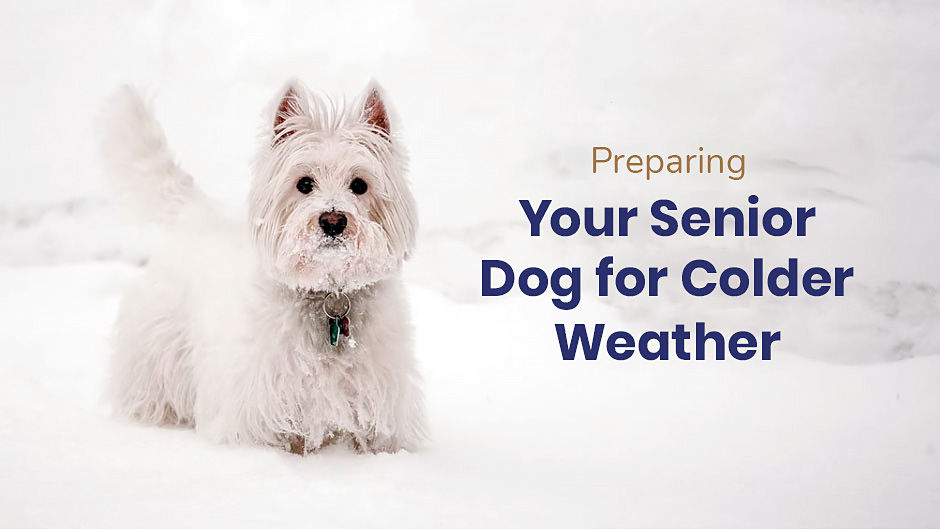Have you noticed the recent chill in the air? Harsh Minnesota winters are hard on older dogs, and it is essential to take some extra precautions as the temperature drops. Here at Minnesota Veterinary Hospital, we are here to make sure you and your pets are prepared!
What Does Colder Weather Mean for Your Pet?
Cold weather comes with a variety of health concerns for your pet. One of the most commonly seen problems during the winter is cracked paw pads. The cold, dry air can cause paws to become dry and chapped. Likewise, walking on rough ice or exposure to chemicals that melt ice can cause further damage and irritation to your pet’s paws. In some cases, paw pads may begin to bleed.
Check your pet’s paws regularly for any signs of cracked or damaged skin. If your pet starts to show signs of discomfort, reduce the amount of time your pet is spending outside. You may even want to consider investing in some dog boots to provide their feet with a little extra protection.
Another major concern during the winter is hypothermia. Signs of hypothermia include lethargy, weakness, shivering, and stumbling. If you are concerned your pet is suffering from hypothermia, you must seek veterinary care immediately. Please give us a call at 651-484-3331. If we are not open, please seek emergency care at the Animal Emergency and Referral Center of Minnesota.
Special Considerations for Older Pets
As your pet ages, they may be dealing with discomfort from aging joints and arthritis. Cold weather can exacerbate these problems. Be aware that your pet may have some extra difficulty moving around and getting comfortable. Additionally, they are also at greater risk of injury from falls or slips on the ice. Be patient with your senior pets and try to make their environment as comfortable as possible.
Another complicating factor for senior pets and cold weather is underlying medical conditions such as diabetes or heart disease. These health conditions can make it more difficult for your pet to control their body temperature. As a result, your senior dog may get cold more quickly and be at greater risk of hypothermia. It’s essential to keep a close eye on your pet and monitor their comfort closely. You may also need to consider limiting the amount of time your pet spends outside.
How to Fight the Winter Blues
If your pet enjoys their time outside, being cooped up may give them a case of the winter blues. Try to make the extra time indoors fun! Consider incorporating food puzzles into their daily routine or playing some indoor fetch. Even if you can’t go outside for your pet’s normal activities, it’s crucial to set time aside for some indoor fun.
Let Us Help!
At Minnesota Veterinary Hospital, senior pets hold a special place in our hearts. We pride ourselves in providing quality senior care to help your pet enjoy their golden years. If you have questions about keeping your pet safe this winter or need to schedule your dog’s senior wellness appointment, please give us a call or schedule a visit through our pet portal.
Image credit: Unsplash.

